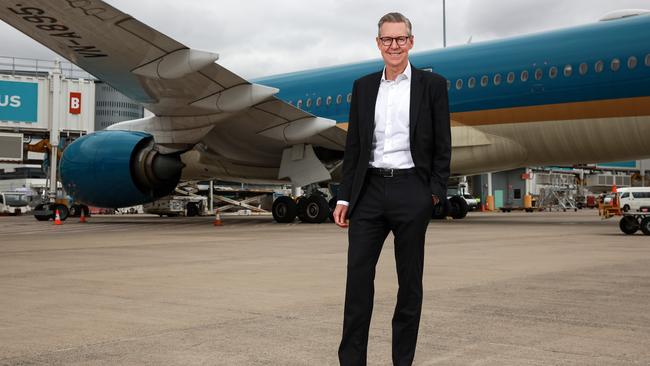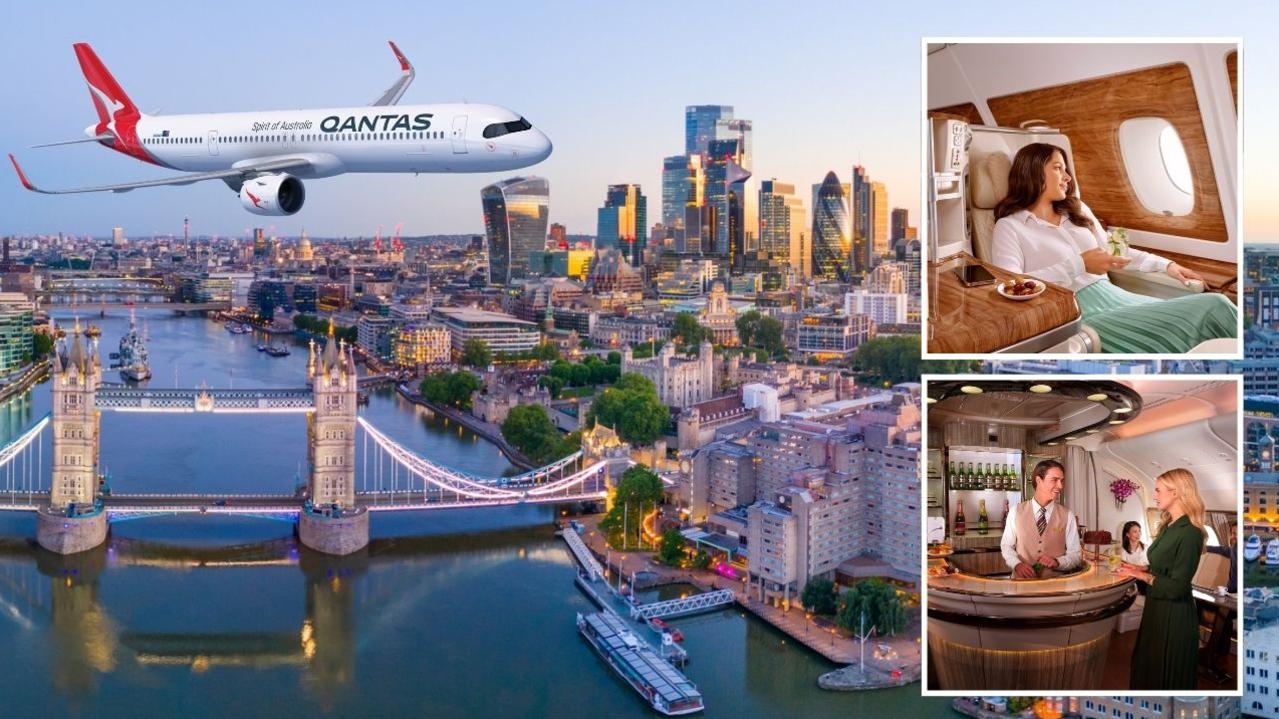Aviation’s biggest challenge — and why Australia is failing the test
It’s the biggest challenge facing Australia’s aviation industry but as another year draws to a close, there is still no sustainable jet fuel being produced here.

When outgoing Sydney Airport chief Geoff Culbert is asked about the biggest challenge facing aviation, he does not hesitate.
“It’s to solve the challenge around sustainable jet fuel,” he says.
Few in the aviation industry would disagree, yet frustration is growing that Australia is not even in the race, particularly at a policy level.
Every month, the International Air Transport Association provides an update on developments towards the industry-wide target of net zero emissions by 2050, and Australia rarely rates a mention.
In contrast, the Inflation Reduction Act in the US includes a mind boggling $520bn in programs and funding to accelerate the transition to net zero carbon emissions.
The European Union has in place a ReFuelEU mandate, specifying a minimum supply of sustainable aviation fuel (SAF) at airports and fuel companies from 2025, to help drive investment and demand.
Airlines are actively seeking to engage passengers in the pursuit of net zero with Emirates recently staging a demonstration flight using SAF in an A380 for the first time.
The flight was intended to build confidence in the use of SAF as a “drop-in fuel” matching jet fuel’s technical and chemical requirements, while reducing carbon emissions.

Lufthansa this week extended “green fares” to long haul flights between the Asia Pacific and Europe, giving travellers the chance to fly guilt and carbon-free.
Designed to cover the cost of carbon offsets and the use of SAF on specific routes, Lufthansa has reported strong demand for the fares, selling more than 500,000 to date.
Qantas is expected to offer a similar option for passengers as it navigates the difficult path towards net zero, and has also stumped up financial support to help incentivise domestic production of SAF.
To date, very little of Qantas’ $300m fund with Airbus has been taken up, pushing the prospect of a ready supply of SAF into the unknown.
At the same time, Australian feedstock is increasingly going overseas for the purpose of producing sustainable aviation fuel — which local airlines will then have to import at significant cost.
“We’ll end up being a price taker, trying to buy back our own product at inflated prices in a global market where demand exceeds supply,” Mr Culbert said.
“I don’t like that equation for the Australian aviation industry.”
His concerns echo those of Airbus Australia chief representative Stephen Forshaw, who recently warned of the now urgent need for action on SAF.
In his final interview before exiting Sydney Airport, Culbert said it’s imperative Australia at least falls into step with what’s happening elsewhere.

“We need to be constantly assessing where we are against our global competitors and ensuring we’re not falling behind them,” he said.
To do so would be catastrophic — for much more than the aviation industry.
“We’re a small country, we’ll ultimately be at the end of the supply chain if we allow ourselves to be there and that will have a material impact on aviation in Australia,” Mr Culbert said.
“We can’t do without aviation in Australia. We don’t have the rail network to substitute for air travel, we’re an island nation a long way from the rest of the world.”
Heading towards the end of the year, IATA says SAF production in 2023 amounted to a mere 0.2 per cent of airlines’ needs.
For that airlines paid $750m more than for the same amount of jet fuel, due to the significant premium on SAF.
Stating the obvious, IATA director-general Willie Walsh said the SAF production market is “not developing fast enough”.
“We need SAF everywhere in the world, and to that end, the right supportive policies – policies that can stimulate production, promote competition, foster innovation, and attract financing – must be put in place today,” Mr Walsh said.








To join the conversation, please log in. Don't have an account? Register
Join the conversation, you are commenting as Logout